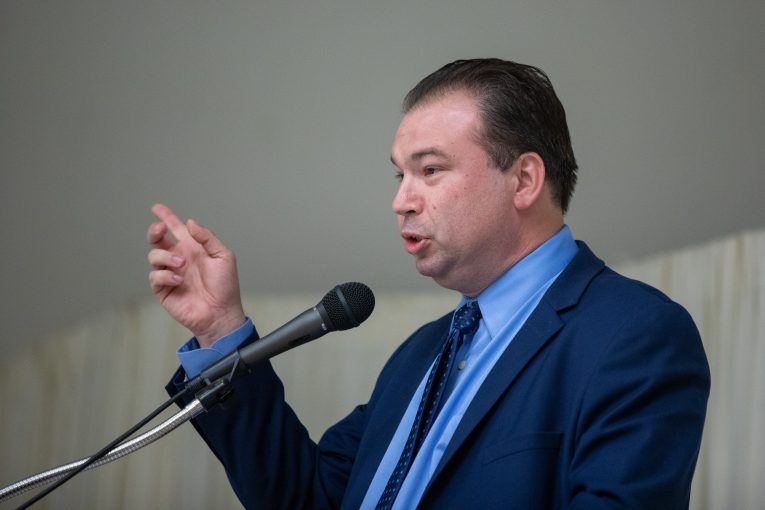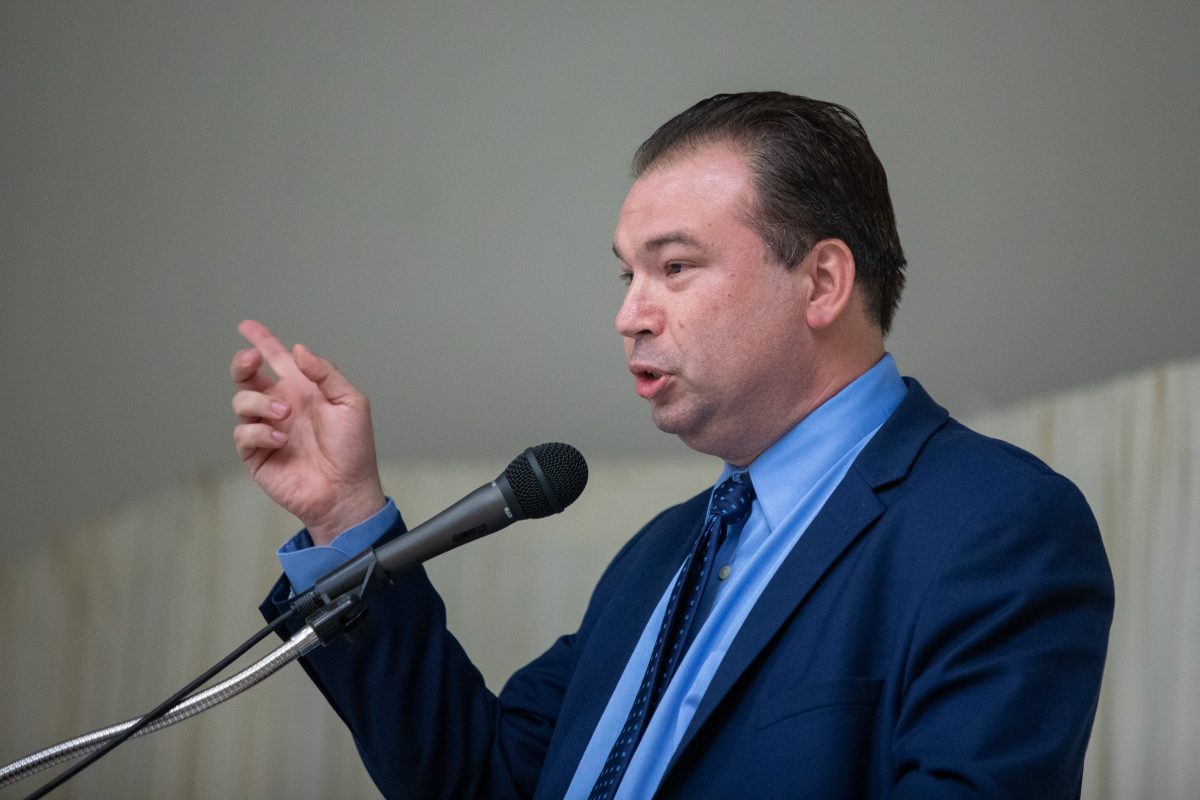

by Jeffrey Deskovic
“Looking back” will feature reprints of articles that Jeff previously wrote while a columnist at The Westchester Guardian, which encompass topics that are applicable here in CA as well as across the country and not simply applicable to NY.
As readers know, I served sixteen years in prison for a murder and rape I did not commit. I was proven innocent three and 1/2 years ago. I recently spoke with a mother who advised her son was wrongfully convicted. She asked for advice to pass on to him about things he should do while in prison. My answer falls into two categories: managing his case and personal betterment.
The law library
Every wrongfully convicted inmate should spend time in the prison law library to try and learn, as best as possible, a working knowledge of the legal issues involved in his case. Knowledge about appellate process and procedure is especially important. I recommend against getting legal advice from prison law library clerks. Desperate prisoners often would pay the clerks to work on their appeals, and the clerks did an incompetent job. Jailhouse lawyers are not real lawyers.
Stay on top of your attorney
When I received legal briefs from my attorney, I would go to the law library and look up the case law he cited to get a sense of his argument and its strength. It is important a prisoner become an active participant in his own defense. Also, prisoners should monitor legal developments in changing case law. He may discover a change in case law which escaped notice by his attorney.
Read wrongful conviction literature
This is important for several reasons. It is important to understand routes others used successfully to achieve their exoneration. It also provides contacts with people and organizations which may be able to provide additional legal assistance. For example, some wrongful convictions were based on fraud or misconduct by law enforcement officials. Information from defense experts in one case led to other wrongfully convicted men being cleared.
In addition, reading about other exonerations gave me hope and boosted my spirits. Specifically, I found solace reading the magazines Justice Denied and Innocence Denied, as well as Justice and Prisoner’s Legal Services. Subscriptions to the first two are inexpensive, provide a wealth of information and an opportunity to seek attention for one’s case by placing an ad or publishing an article. Justice and Prisoner’s Legal Services are free publications.
Personal betterment
The mere fact of wrongful incarceration means time in prison is a waste, given the lack of opportunities for education, economic and career advancement, and the inability to develop a meaningful social life. That said, I believe it is wise to try to minimize that loss in any way possible, however limited. In concrete terms, this means taking advantage of limited educational opportunities in prison.
Get a GED
If a prisoner never graduated from high school, he must get his General Education Degree. Often, a prisoner’s family is unable to afford college correspondence courses. If the family can afford them, they should be pursued.
Learn to type
We live in the computer and information age. Using a keyboard is a mandatory skill which has positive benefits in a great many areas of life, both personal and professional.
Learn how to tutor
Some prisons make it possible to work as a teacher’s aide. There is a course in which prisoners are instructed in different teaching styles, how adults learn, and how to tutor them. The insight I gained from this training assisted me as I completed my Bachelor’s Degree and began to pursue a Masters.
Read non-fiction books
Although the prison library has a limited selection, the books available do have some value. Reading non-fiction is a good way to educate oneself, and non-fiction is more valuable than fiction. I recommend reading books on self-help and relationships. These books helped me to reflect on myself and others. If I found a concept had value, I acted on it; otherwise, I rejected it. In addition, I learned some important interpersonal communication skills by reading books about relationships.
Exercise
Whether by working out or playing sports, or simply walking, exercise is important. I found working up a sweat helped reduce my stress level and enabled me to think more clearly. Many people emerge from prison in bad health, and sometimes, in irreversible bad health. Exercise helps to minimize this.
Get outside yourself
It is important for prisoners to throw themselves into something external to avoid concentrating on cell walls and becoming depressed. The prisoner must keep his mind fresh to work on clearing his name. I focused on chess. I read chess books in the library, purchased chess books, or borrowed them from other chess enthusiasts.
Stay connected to the outside world
This is important lest the prisoner go crazy. Some successful methods I used were reading newspapers—when I could get my hands on them—subscribing to free or low-cost publications and listening to the radio. I enjoyed independent radio station WBAI because of its social justice programming. Sports radio was also helpful because I could spend time listening about an activity I once enjoyed as a free man. This helped me refresh my mind.
Most of all, never give up hope.
“Jeffrey Deskovic, Esq, MA, is an internationally recognized wrongful conviction expert and founder of The Jeffrey Deskovic Foundation for Justice, which has freed 9 wrongfully convicted people and helped pass 3 laws aimed at preventing wrongful conviction. Jeff is an advisory board member of It Could Happen To You, which has chapters in CA, NY, and PA. He serves on the Global Advisory Council for Restorative Justice International, and is a sometimes co-host and co-producer of the show, “360 Degrees of Success.” Jeff was exonerated after 16 years in prison-from age 17-32- before DNA exonerated him and identified the actual perpetrator. A short documentary about his life is entitled “Conviction“, and episode 1 of his story in Virtual Reality is called, “Once Upon A Time In Peekskill“. Jeff has a Masters Degree from the John Jay College of Criminal Justice, with his thesis written on wrongful conviction causes and reforms needed to address them, and a law degree from the Elisabeth Haub School of Law at Pace University. Jeff is now a practicing attorney.
